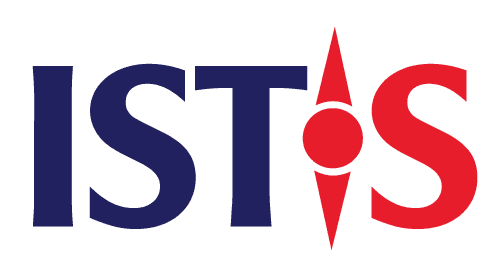Vietnam is increasingly recognized as one of Southeast Asia’s rising innovation hubs — a country where scalable solutions are born not only in labs and startups, but also in classrooms, factories, and rural communities. From high-tech manufacturing to digital government platforms and green startups, Vietnam’s most successful innovation case studies offer practical lessons for policymakers, entrepreneurs, and international partners alike.
Turning Local Challenges Into Scalable Solutions
Logistics Innovation — Abivin and the Smart Supply Chain
Logistics remains one of Vietnam’s most complex and fragmented sectors. With its long, narrow geography and uneven infrastructure across regions, the efficient movement of goods—especially for fast-moving consumer goods (FMCG), retail, and e-commerce—poses both operational and financial challenges. This is where Abivin, a Vietnamese startup, emerges as a transformative force.
Founded with a focus on intelligent logistics optimization, Abivin’s flagship product, vRoute, uses machine learning and artificial intelligence to automate delivery route planning and fleet scheduling. The solution tailors itself to the unique conditions of Vietnamese roads: dense traffic in urban areas, inconsistent signage in rural zones, and the constraints of vehicle weight regulations and delivery windows. Where traditional logistics planning might take hours—or depend on individual driver knowledge—vRoute delivers optimized results in minutes, ensuring greater fuel efficiency and lower delivery costs.
Abivin’s innovation is not merely technological. What sets it apart is its alignment with the local business landscape. Many Vietnamese businesses still manage deliveries manually or rely on basic tools like spreadsheets. Abivin bridges this digital divide with a cloud-based SaaS model, offering scalable pricing that appeals to both large logistics providers and SMEs. It also includes multilingual support and localized interfaces, helping companies onboard staff quickly without extensive retraining.
The impact of Abivin’s work is tangible. Companies using its platform report fuel savings of up to 30%, improved delivery reliability, and reduced manpower needs. In sectors like consumer goods, where time-to-shelf can influence profitability, these savings translate into strategic advantage.
Abivin’s recognition on global stages—such as winning the Startup World Cup 2019—proves that Vietnamese tech talent can solve both domestic and international logistics problems. Yet its true strength lies in addressing local inefficiencies with precision and adaptability.
In essence, Abivin illustrates how Vietnamese startups are not just digitizing logistics—they’re reengineering it. Through data, cloud infrastructure, and a deep understanding of market pain points, Abivin is helping to make Vietnam’s supply chains smarter, more sustainable, and future-ready.
Healthcare Transformation — Ecomedic’s Remote Monitoring Ecosystem
Vietnam’s healthcare system faces increasing pressure from a growing population, aging demographics, and limited access to care in remote provinces. While urban hospitals often suffer from overcrowding, rural patients struggle with long travel times and limited specialist availability. Bridging this divide requires more than infrastructure—it demands a new model of care delivery. Ecomedic, a Vietnamese healthtech startup, is stepping up with a technology-driven solution rooted in preventive and connected care.
At the core of Ecomedic’s innovation is its remote patient monitoring ecosystem. This system integrates wearable devices, mobile applications, and cloud-based data analytics to track patients’ vital signs—such as heart rate, blood pressure, and glucose levels—in real time. Physicians and caregivers can monitor patients remotely, receive alerts for unusual patterns, and intervene early when necessary.
What makes this model particularly compelling for Vietnam is its adaptability to local healthcare challenges. Ecomedic partners with provincial hospitals and community clinics, ensuring their solution reaches underserved areas. Instead of requiring patients to visit a central hospital for routine checks, local nurses or family members can assist with device use, uploading health data through mobile apps—even in areas with low internet bandwidth.
The approach also helps to relieve the burden on tertiary care facilities. By allowing doctors to focus on critical patients while keeping stable ones under remote supervision, the healthcare system becomes more efficient. Moreover, during COVID-19, Ecomedic’s infrastructure enabled continuity of care while minimizing infection risks—a use case that accelerated both adoption and trust in the platform.
Ecomedic’s strength lies in its holistic integration: medical data isn’t just passively collected; it’s actively analyzed using AI to predict risks and recommend interventions. This helps transform healthcare from reactive to proactive—a shift that’s vital for countries like Vietnam facing resource constraints.
In doing so, Ecomedic is shaping the future of healthcare in Vietnam—one where technology decentralizes care, empowers patients, and improves outcomes across geographies. It demonstrates how innovation in health isn’t about replacing doctors, but extending their reach through thoughtful, accessible tech.
Agricultural Intelligence — Demeter and Smart Farm Management
Agriculture remains a cornerstone of Vietnam’s economy, employing a large portion of the workforce and contributing significantly to exports. Yet, traditional farming practices still dominate, leading to inefficiencies, unpredictable yields, and environmental concerns such as overuse of pesticides and water. In this context, Demeter—a Vietnamese agri-tech startup—is demonstrating how digital innovation can elevate agriculture into a data-driven, resilient sector.
Demeter’s flagship platform focuses on smart farm management, using sensors, satellite imaging, and data analytics to help farmers make better decisions. From soil moisture and pH monitoring to weather forecasting and crop cycle planning, the platform turns raw environmental data into actionable insights. Farmers can access this information via a mobile app in Vietnamese, making high-tech tools approachable for smallholders as well as larger agribusinesses.
A standout aspect of Demeter’s model is its integration with local agricultural cooperatives. These partnerships help scale adoption quickly, as cooperatives serve as a bridge between tech innovators and rural farmers. Through training sessions and bundled equipment packages, Demeter ensures that even non-tech-savvy farmers can participate in the digital transition.
Moreover, Demeter is building value across the supply chain. Its platform can track produce from farm to market, offering transparency for buyers and reducing post-harvest losses. This traceability is especially important for Vietnam’s export-oriented crops like coffee, rice, and dragon fruit, where quality assurance is key to entering global markets.
What sets Demeter apart is its contextual intelligence. The platform doesn’t impose one-size-fits-all solutions. Instead, it allows for customization by crop type, region, and even the farmer’s level of digital familiarity. This localized adaptability enhances its effectiveness and increases trust among farming communities.
As Vietnam pushes for agricultural modernization and climate-resilient practices, startups like Demeter are leading the way. They are not only improving productivity and sustainability but also redefining farming as a profession rooted in precision, insight, and long-term planning.
Education Reimagined — Edmicro’s Data-Driven Learning
Vietnam’s education system has made impressive strides in recent decades, but persistent challenges remain—ranging from exam-centric learning models to disparities in access and quality between urban and rural areas. In this context, Edmicro, a Hanoi-based edtech company, is reshaping how Vietnamese students learn and how educators teach—through a model deeply rooted in personalized, data-driven education.
At the heart of Edmicro’s innovation is its flagship product ONLuyen.vn, an adaptive learning platform designed for K–12 students. The platform uses machine learning to assess individual learning paths, dynamically adjusting exercises, practice tests, and recommendations to suit each student’s strengths and weaknesses. This goes far beyond static digital content—it creates a real-time feedback loop that enhances learning efficiency and student engagement.
What makes Edmicro especially relevant in the Vietnamese context is its deep integration with the national curriculum and its collaboration with public schools. Teachers can use the platform to assign targeted exercises, monitor class performance through dashboards, and identify students who need additional support. For students in remote provinces, ONLuyen.vn also offers mobile access with low bandwidth requirements, ensuring inclusivity.
During the pandemic, Edmicro became a critical lifeline for continuity in education, quickly scaling its services to meet surging demand. It offered free access to affected schools and provided teacher training, demonstrating how agile edtech can respond to systemic shocks.
But Edmicro isn’t only a pandemic response story. Its long-term vision focuses on building a learning ecosystem that incorporates parent engagement, school analytics, and exam readiness—all anchored in measurable outcomes. By turning educational data into strategic insights for both learners and institutions, Edmicro is helping Vietnam shift from rote memorization to competency-based education.
As education reform continues to be a national priority, Edmicro’s model highlights how innovation can support not just digital access, but true pedagogical transformation—creating students who are not only better prepared for exams, but also for a rapidly evolving workforce.
Fintech Innovation — MFast and Financial Access
Access to financial services in Vietnam has historically been limited for segments of the population, particularly in rural areas and among informal workers. Traditional banks often face high operational costs when expanding to underserved markets, while the credit needs of millions remain unmet. In this gap, MFast, a rising fintech platform, has emerged with a distinct business model: using digital tools and human networks to bring financial products to the last mile.
Founded by startup studio JupViec.vn’s creators, MFast operates as a financial product distribution platform that connects users with loans, insurance, and other services. But rather than positioning itself as a digital-only app, MFast leverages a network of freelance agents—many of whom are in the same communities as the end customers—to explain, sell, and support the products in person. This hybrid model builds trust, especially in areas where digital literacy or smartphone penetration is lower.
The platform provides agents with mobile tools to onboard customers, conduct basic KYC (know-your-customer), and manage commissions transparently. Customers benefit from simplified processes and access to a variety of products from trusted providers. Behind the scenes, MFast uses data analytics to track performance, detect fraud, and optimize the match between customers and financial products.
By combining tech infrastructure with human insight, MFast has managed to reach over 800,000 users in Vietnam, many of whom were previously outside the reach of mainstream financial institutions. It also creates new income streams for its agent network—aligning economic incentives for all participants.
The success of MFast reflects a broader trend in Vietnam’s fintech sector: solving for distribution and trust in markets where pure digital strategies may fall short. Its model demonstrates how innovation in financial services doesn’t always mean replacing old systems—it can mean rethinking how to deliver value in a more contextual, inclusive way.
As Vietnam’s digital economy expands, models like MFast may shape how fintechs scale responsibly—focusing not just on product innovation, but on bridging systemic access gaps in tangible, measurable ways.
Government-Led Innovation With Market Impact
Public-private collaboration has also fueled innovation at scale. The Ministry of Science and Technology, through initiatives, has supported startups through policy incentives, incubation spaces, and global exposure. One example is the collaboration with international partners to support startups focused on sustainability and digital transformation.
Vietnam’s e-government push is another compelling innovation case study. The development of digital ID systems, online public services, and smart city solutions — especially in Hanoi, Ho Chi Minh City, and Da Nang — shows how digital innovation can improve governance while creating new market opportunities for local tech firms.
Key Lessons From Vietnam’s Scaled Innovations
The success of these case studies reveals several recurring factors:
- Context-driven design: Innovations that respond to real, localized problems tend to be more scalable because they address practical needs with relevance and urgency.
- Strong ecosystem support: Access to mentors, early funding, and government facilitation creates fertile ground for growth.
- Global mindset from the start: Even locally developed solutions have found traction beyond Vietnam by integrating global best practices and standards.
- Social impact integration: Many of Vietnam’s most successful innovations deliver both economic and social value — whether through job creation, sustainability, or education — making them attractive to impact investors and development partners.
Looking Ahead: Vietnam as a Regional Innovation Exporter
With a young, tech-savvy population and increasing investment in R&D, Vietnam is poised not only to innovate for itself, but to export scalable solutions to other emerging markets. Its innovation journey offers valuable insights for countries aiming to build inclusive, agile, and resilient economies.
As more innovation case studies from Vietnam gain international attention, they reinforce a powerful message: impactful innovation doesn’t require massive capital — it requires relevance, agility, and a commitment to solving real problems.








